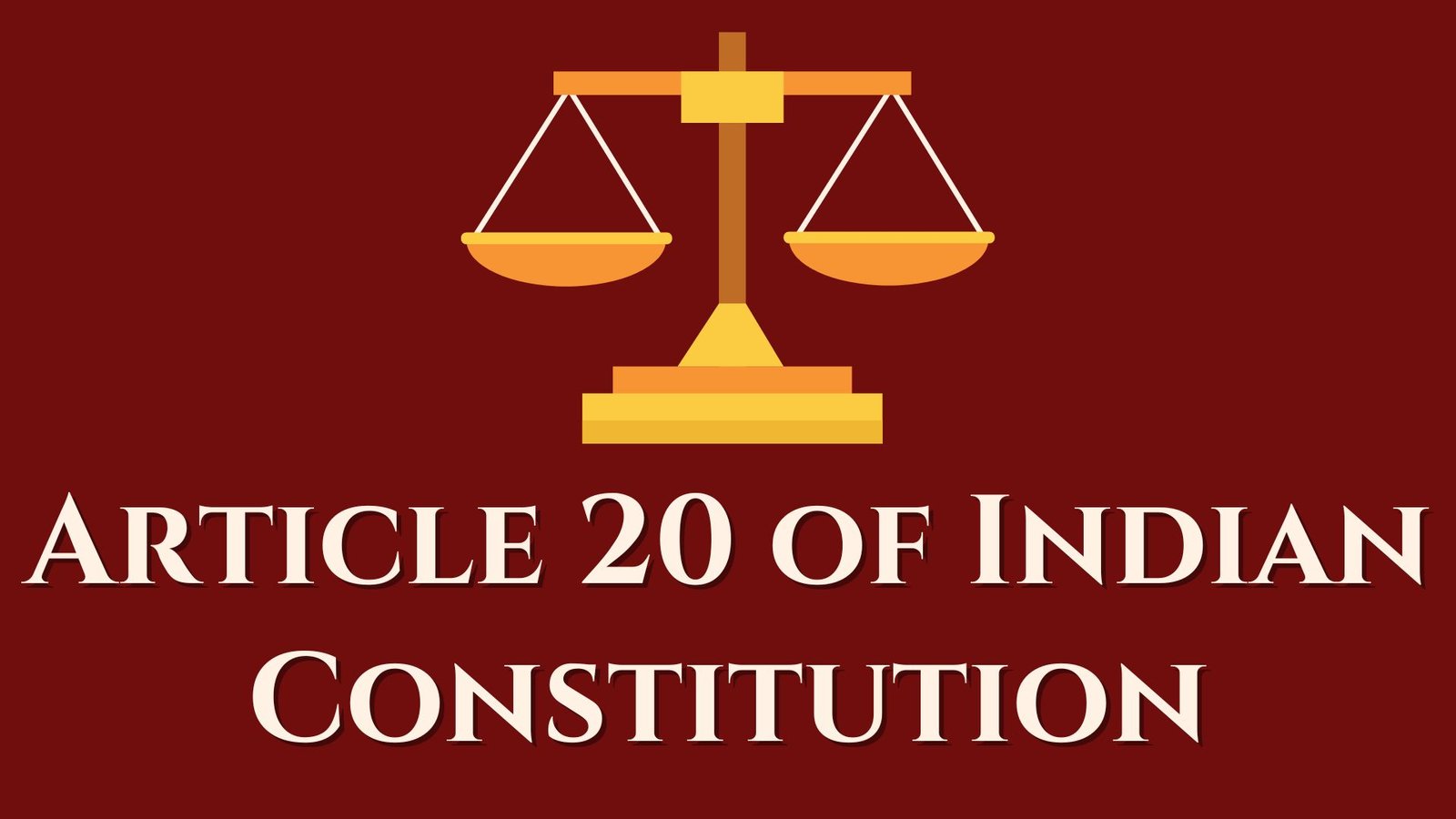On this page you will read detailed information about Consumer Rights in India.
As a consumer in India, you are protected by a robust set of guaranteed rights. Understanding these rights empowers you to make informed decisions and seek recourse when necessary. The Consumer Protection Act of 2019 strengthened existing protections and introduced new safeguards to address modern marketplace challenges. Whether you’re purchasing goods or services, you have the right to safety, information, choice, and redressal. This overview will examine the key consumer rights guaranteed under Indian law, how they apply in practice, and what steps you can take if your rights are violated. Knowing your rights is the first step to becoming a more confident, discerning consumer in today’s complex marketplace.
The Right to Safety
The right to safety is a fundamental consumer right guaranteed in India, protecting citizens against hazardous goods and services. This crucial Consumer Rights provision empowers individuals to demand quality and safety assurances before making purchases.
Legal Framework
India’s Consumer Protection Act of 2019 strengthens the right to safety, mandating that products and services must not endanger consumer health or life. The Act establishes the Central Consumer Protection Authority (CCPA) to regulate violations of consumer rights and impose strict penalties on manufacturers and sellers of defective or hazardous products.
Quality Assurance Measures
To help consumers identify safe products, various quality marks have been introduced, including:
- ISI (Indian Standards Institute)
- AGMARK (Agricultural Marketing)
- Hallmark (for precious metals)
These certifications provide assurance of product quality and safety standards.
Consumer Responsibilities
While the right to safety is guaranteed, consumers also have responsibilities to ensure their own protection:
- Check for standard quality marks before purchasing
- Use products with caution and care
- Read product labels and instructions carefully
- Inquire about safety features from sellers
- Avoid purchasing counterfeit or dangerous products
Impact on Industries
The right to safety is particularly crucial in sectors like healthcare, pharmaceuticals, food processing, and industries with indirect health impacts such as automobiles and domestic appliances. It ensures that consumers can trust the quality and safety of goods and services across various sectors.
By understanding and exercising their right to safety, consumers can make informed decisions, hold businesses accountable, and contribute to a safer marketplace for all.
The Right to be Informed
The right to be informed is a fundamental consumer right guaranteed under India’s Consumer Protection Act, 2019. This crucial provision ensures that consumers have access to essential information about products and services before making a purchase decision.
Access to Product Information
Under this right, consumers are entitled to receive accurate and complete details about the quality, quantity, potency, purity, standard, and price of goods or services. This information empowers consumers to make informed choices and protects them from unfair trade practices and misleading advertisements.
Key sources of information include:
- Product labels
- Advertisements
- Print and electronic media
- Official records of public and private organizations
Protection Against Misleading Information
The Act takes a strong stance against deceptive practices. The Central Authority can impose penalties of up to Rs 10 Lakhs on manufacturers or sellers for misleading advertisements. Repeat offenses may result in higher penalties and even imprisonment.
Consumer Responsibilities
While the right to be informed is protected by law, consumers also have a responsibility to:
- Thoroughly research products and services before purchase
- Critically evaluate information from advertisements and media
- Insist on receiving complete information about warranties, guarantees, and safety features
By being vigilant and demanding accurate information, consumers can influence the market and prevent deceptive practices. This right, therefore, not only protects individual consumers but also contributes to a fair and transparent marketplace for all.
The Right to Choose
The right to choose is a fundamental consumer right guaranteed in India, empowering consumers to make informed decisions about the products and services they purchase. This right ensures that consumers have access to a variety of options at competitive prices, fostering a fair and balanced marketplace.
Freedom of Selection
According to the Consumer Affairs Ministry, the right to choose assures consumers, wherever possible, access to a diverse range of goods and services at competitive prices. This freedom allows you to select products that best meet your needs and preferences, without being forced into unwanted purchases.
In cases of monopolies, this right extends to ensuring satisfactory quality and service at fair prices. It’s crucial to remember that an unrestricted right to choose for a minority shouldn’t result in denying a fair share to the majority.
Informed Decision-Making
To exercise your right to choose effectively, it’s essential to gather all relevant information about a product or service before making a decision. This approach helps you act wisely and responsibly, avoiding high-pressure sales tactics that might compromise your choices.
The Consumer Protection Act of 2019 further strengthened consumer rights by introducing the concept of “Unfair Contract,” which can affect a consumer’s rights. This addition aims to protect you from agreements that might unfairly limit your choices or impose unreasonable conditions.
Competitive Market Benefits
A competitive market is crucial for the meaningful exercise of consumer rights. When various goods are available at competitive prices, you can make choices that align with your preferences and budget. This competition often leads to improved quality and innovation as businesses strive to attract and retain customers.
Remember, as a consumer in India, you have the right to access a variety of goods and services at competitive prices. If you feel this right has been violated, you can seek redressal through the appropriate consumer forum – be it at the District, State, or National level – depending on the value of the goods or services in question.
In the previous post, we had shared information about Article 20 of Indian Constitution, so read that post also.
The Right to be Heard
In India, consumer rights are protected by law, ensuring that every individual has the power to voice their concerns and seek redressal for grievances. The Consumer Protection Act of 2019 reinforces this fundamental right, empowering consumers to be heard and have their interests given due consideration at appropriate forums.
Accessible Complaint Mechanisms
The Act establishes a robust three-tier quasi-judicial mechanism for consumers to file complaints and seek redressal. This system includes:
- District Consumer Disputes Redressal Commission
- State Consumer Disputes Redressal Commission
- National Consumer Disputes Redressal Commission
These forums handle complaints based on the value of goods or services in question, ensuring that consumer rights are upheld at various levels.
Empowering Consumers
The right to be heard encourages consumers to fearlessly put forward their complaints and raise their voices against unfair practices. It’s important to note that hiring a lawyer is not mandatory; consumers can file complaints themselves by following a simple procedure.
Streamlined Processes
To further facilitate consumer rights, the government has introduced initiatives like ‘eDaakhil,’ an online platform for easy complaint registration. This digital approach streamlines the process, making it more accessible for consumers to exercise their right to be heard.
Central Consumer Protection Authority
The establishment of the Central Consumer Protection Authority (CCPA) has significantly strengthened consumer rights in India. This body can take suo moto action on consumer complaints, initiating investigations and ensuring that the collective voice of consumers is heard and addressed.
By understanding and exercising these rights, consumers play a crucial role in maintaining fair market practices and holding businesses accountable. The right to be heard serves as a powerful tool in safeguarding consumer interests and promoting a just marketplace in India.
The Right to Seek Redressal
Understanding Consumer Rights and Redressal Mechanisms
In India, consumer rights are robustly protected, with a strong emphasis on the right to seek redressal. This fundamental consumer right empowers individuals to voice their grievances and seek fair compensation when their rights are violated. The Consumer Protection Act of 2019 serves as a cornerstone for these protections, establishing a comprehensive framework for addressing consumer complaints.
Three-Tier Redressal System
India has implemented a three-tier system to handle consumer disputes efficiently:
- District Consumer Dispute Redressal Forum
- State Consumer Dispute Redressal Commission
- National Consumer Dispute Redressal Commission (NCDRC)
This hierarchical structure ensures that consumers have access to justice at various levels, depending on the value of their claims. For instance, the NCDRC handles complaints valued at over one crore rupees, while lower forums deal with smaller claims.
Accessible Grievance Resolution
To make the redressal process more accessible, the government has introduced the Integrated Grievance Redressal Mechanism (INGRAM). This platform allows consumers to register complaints through multiple channels, including a toll-free number, SMS, online portal, and even WhatsApp. The INGRAM system has garnered praise for its efficiency and quick response times, empowering consumers to hold companies accountable.
Empowering Consumers
The right to seek redressal is not just about filing complaints; it’s about fostering a culture of consumer awareness and protection. Consumer Protection Councils at various levels work to promote consumer rights and education. This comprehensive approach ensures that consumers are not only protected but also empowered to make informed decisions and assert their rights effectively.
The Right to Consumer Education
In India, consumer rights extend beyond mere protection to include the crucial right to consumer education. This fundamental right empowers you with the knowledge and skills necessary to make informed decisions in the marketplace.
Understanding Consumer Education
Consumer education is a cornerstone of consumer rights in India. It encompasses a wide range of information and skills that enable you to navigate the complex world of goods and services. By understanding your rights and responsibilities as a consumer, you become better equipped to make wise purchasing decisions and protect yourself from unfair practices.
The Importance of Consumer Awareness
Consumer awareness is a key component of consumer education. It involves staying informed about various products, services, and market trends. By cultivating consumer awareness, you can:
- Recognize deceptive marketing practices
- Compare products effectively
- Understand the terms and conditions of purchases
- Identify potential safety hazards in products
Government Initiatives for Consumer Education
The Indian government has taken significant steps to promote consumer education. Various programs and initiatives have been launched to raise awareness about consumer rights and responsibilities. These efforts aim to create a more informed and empowered consumer base, ultimately contributing to a fair and competitive marketplace.
The Role of Consumer Organizations
Consumer organizations play a vital role in furthering the right to consumer education. These non-profit entities work tirelessly to:
- Conduct research on consumer issues
- Provide educational resources and workshops
- Advocate for stronger consumer protection laws
- Assist consumers in resolving disputes with businesses
By leveraging the resources provided by these organizations, you can enhance your understanding of consumer rights and make more confident decisions in the marketplace.
The Right to Basic Needs
Essential Components of Consumer Rights
In India, consumer rights encompass more than just protection from unfair practices. They extend to ensuring access to fundamental necessities for a dignified life. The right to basic needs is a cornerstone of consumer rights, addressing vital aspects of daily living.
Food and Clothing
The right to food is paramount, with the government implementing a “one nation one ration card” scheme to ensure nationwide access. Similarly, the right to clothing is crucial, especially for those living near or below the poverty line. Affordable clothing initiatives are essential to uphold this right.
Healthcare and Water
Access to quality healthcare is a fundamental consumer right. A robust national health policy focusing on disease prevention is necessary to fulfill this need. Equally important is the right to clean drinking water and proper sanitation, which requires improved water supply facilities and system maintenance.
Shelter and Education
The right to shelter demands government support for affordable housing and accessible housing finance. Education, a critical right, enables consumers to understand and exercise their other rights. Effective implementation of educational policies, with strong support for underprivileged students, is crucial.
Energy and Transportation
Addressing power generation shortages and distribution losses is key to fulfilling the right to energy. For transportation, extending road networks to rural areas is vital, as roads are India’s primary mode of transit. These rights ensure that consumers can access essential services and participate fully in society.
By safeguarding these basic needs, India strengthens its commitment to consumer protection and empowerment, fostering a society where every individual can lead a life of dignity and exercise their consumer rights effectively.
The Right to Healthy Environment
Constitutional Provisions
The Indian Constitution, a living document, has evolved to include specific provisions for environmental protection. Article 51A(g) of the Constitution imposes a duty on every citizen to protect and improve the natural environment. Additionally, Article 48A directs the state to safeguard the forests and wildlife of the country. These constitutional mandates underscore the importance of environmental preservation as a fundamental aspect of consumer rights in India.
Judicial Interpretation
The Supreme Court of India has played a crucial role in establishing the right to a healthy environment as a fundamental right. Interpreting Article 21 (Right to Life), the Court has extended its scope to include the right to a pollution-free environment. This judicial interpretation has significantly strengthened consumer rights in India, empowering citizens to demand a clean and safe living environment.
Environmental Claims and Consumer Protection
In recent developments, the Indian government and regulatory bodies have taken steps to protect consumers from misleading environmental claims. The Advertising Standards Council of India (ASCI) has introduced guidelines to regulate “greenwashing” – the practice of making false or exaggerated environmental claims in advertising. These guidelines require advertisers to provide substantial evidence for any environmental assertions, ensuring that consumer rights are protected in the realm of eco-friendly products and services.
Global Context and Future Directions
The recognition of the right to a healthy environment is gaining momentum globally. Over 150 national jurisdictions now recognize this right, and the UN Human Rights Council has adopted a resolution acknowledging it as a human right. As India continues to strengthen its consumer protection framework, aligning with these global trends will be crucial in ensuring comprehensive consumer rights that encompass environmental well-being.
Consumer Rights FAQs
In India, consumers are protected by six fundamental consumer rights. These include:
i) The right to safety
ii) The right to be informed
iii) The right to choose
iv) The right to be heard
v) The right to seek redressal
vi) The right to consumer education
These rights empower consumers to make informed decisions, ensure their safety, and protect them from unfair practices.
If you believe your consumer rights have been violated, you can file a complaint through various channels. The Consumer Protection Act 2019 introduced ‘eDaakhil’, an online platform that streamlines the complaint filing process. Consumers can also approach Consumer Disputes Redressal Agencies at district, state, and national levels for simple, speedy, and inexpensive redressal of grievances.
Product liability refers to the responsibility of manufacturers, sellers, or service providers to compensate consumers for harm caused by defective products or deficient services. Under the Consumer Protection Act 2019, consumers can file complaints within two years of the cause of action.
The Consumer Protection Act 2019 has introduced provisions to safeguard e-commerce transactions. E-commerce entities are required to appoint nodal officers, provide seller information, and establish grievance redressal mechanisms. This ensures that online consumers enjoy the same rights and protections as those shopping offline.
Violations of consumer rights can result in significant penalties. According to the Consumer Protection Act, offenders can face fines up to ₹10 million and imprisonment for up to 6 months, depending on the severity of the violation. These strict measures aim to deter unfair practices and protect consumer interests.
Conclusion
As a consumer in India, you are protected by robust rights and laws designed to safeguard your interests. By familiarizing yourself with these guaranteed protections, you empower yourself to make informed decisions and seek recourse when necessary. Remember that your right to safety, information, choice, and redressal are enshrined in legislation. Should you encounter unfair practices or substandard goods and services, do not hesitate to exercise your rights through proper channels. Stay vigilant, educate yourself on emerging consumer issues, and actively participate in the marketplace. Your awareness and assertiveness as a consumer contribute to a fair and transparent economic environment that benefits all of Indian society.
Disclaimer
The information and services on this website are not intended to and shall not be used as legal advice. You should consult a Legal Professional for any legal or solicited advice. While we have good faith and our own independent research to every information listed on the website and do our best to ensure that the data provided is accurate. However, we do not guarantee the information provided is accurate and make no representation or warranty of any kind, express or implied, regarding the accuracy, adequacy, validity, reliability, availability, or completeness of any information on the Site. UNDER NO CIRCUMSTANCES SHALL WE HAVE ANY LIABILITY TO YOU FOR ANY LOSS OR DAMAGE OF ANY KIND INCURRED AS A RESULT OR RELIANCE ON ANY INFORMATION PROVIDED ON THE SITE. YOUR USE OF THE SITE AND YOUR RELIANCE ON ANY INFORMATION ON THE SITE IS SOLELY AT YOUR OWN RISK. Comments on this website are the sole responsibility of their writers so the accuracy, completeness, veracity, honesty, factuality and politeness of comments are not guaranteed.
So friends, today we talked about Consumer Rights in India, hope you liked our post.
If you liked the information about Consumer Rights in India, then definitely share this article with your friends.
Knowing about laws can make you feel super smart ! If you find value in the content you may consider joining our not for profit Legal Community ! You can ask unlimited questions on WhatsApp and get answers. You can DM or send your name & number to 8208309918 on WhatsApp








